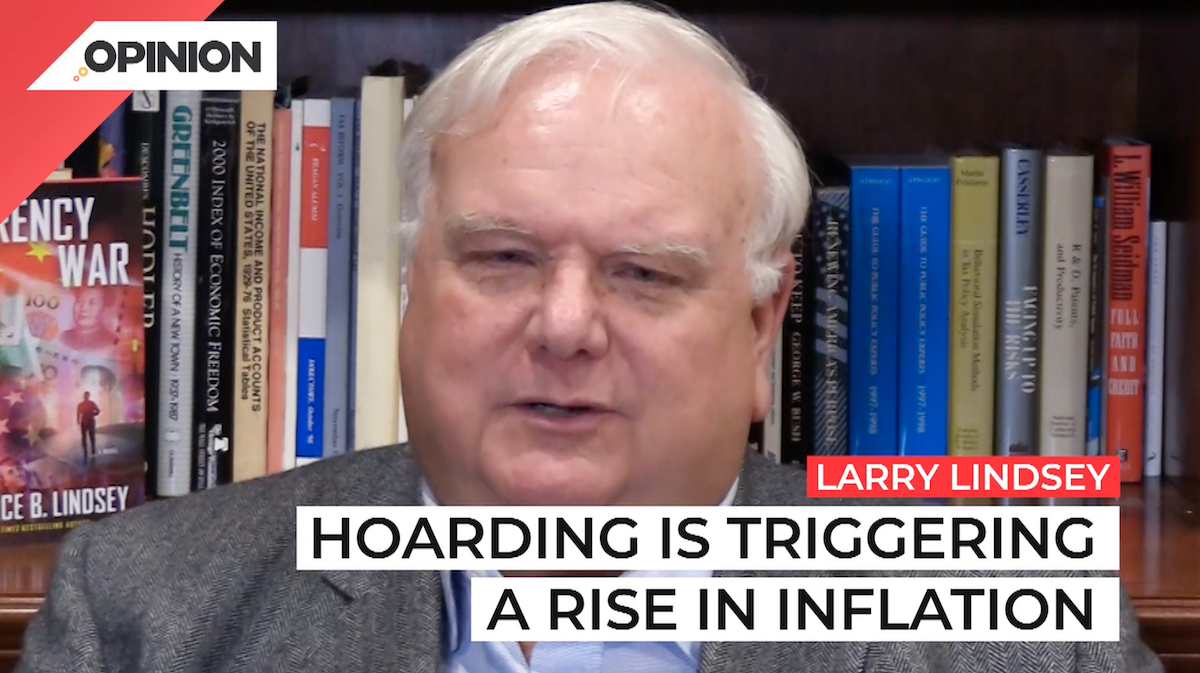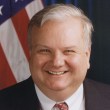
Commentary
-
Our commentary partners will help you reach your own conclusions on complex topics.
I’d like to talk about hoarding today. It’s a word we don’t use very much, but it’s a very important part of thinking about how an economy works. Where do you keep your money or your wealth? Well, you have basically three choices. You can keep it in money. We call liquid money. You can keep it in financial assets, which yield a return, but can go up or down in price and are therefore risky, or you can keep it in hard assets or goods. Uh, and it is goods that are the thing that is often hoarded. Now monetary policy with the federal reserve does affects this choice by controlling interest rates. When interest rates are increased, holding money becomes more attractive and that takes people out of goods. When you buy less goods, it slows the economy. It also takes people out of assets and back into money.
And so oftentimes hikes and interest rates are associated with declines and things like the stock market. Well, it’s not just the federal reserve and interest rates that can decide how people allocate among goods, liquid money and assets. There could also be a change in what we call risk aversion or fear. Now we’ve recently had a reason for fear to rise, and that is shortages. Whether you’re a household who ran out of toilet paper, mirroring COVID, um, or a business that has to run a production, uh, assembly line, you don’t want to run out. And the best way to avoid running out is to buy a little bit more. And there was a lot of hoarding, for example, toilet paper last year, we all remember there was a, um, another very good example of this. Uh, and that was what happened in the late 1970s. With regard to gasoline, there was a, um, an Arab oil embargo, uh, threats of supply disruptions.
And so people started holding more gasoline in their tanks, uh, rather than fill them up when they were close to empty, we would tend to fill them up roughly at half full. Well, that means about five gallons in each of 140 million tanks. Um, that’s, uh, a big, big number it’s um, it’s roughly three days worth of consumption. All of which was immediately put in people’s tanks by hoarding that only made the supply of gasoline tougher and it drove prices up further. The government tried to control things by instituting something called odd, even rationing. You could only buy gas if your license plate had an odd number on odd days and had an even number on even days. But when you can’t buy gas, anytime you want, you’re more likely to hoard even more. And it was a failure. There’s another thing besides shortages, uh, that cause people to hoard, and that is expectation of higher prices.
Why pay more in the future when you can buy it for less today and just hang onto it. Now, you can’t do that with perishable things, but you can do it with a lot of other things. And we’re starting to see that happen in the U S economy. Uh, during the third quarter last quarter, the entire economic growth in the us was, uh, due to what we call inventory investment. In other words, the final goods never went out the door. It was just businesses hoarding inventories, because they couldn’t produce a lot of things because of the supply constraints. Well, of course, when this happens, it simply puts more pressure on prices. As a result. It’s a pretty safe bet that inflation is going to persist for at least another year. Those supply chain problems are not going to go away. Inventories need to be rebuilt.
And probably hoarding is also going to increase as shortages become more widespread. That’s going to be piled on top of what’s already, uh, a very tight labor market and higher wages. So that is how, um, hoarding and monetary policy and shortages come together to affect their economy, expect higher inflation. As we all begin to adapt to this new situation, one way to check on whether this is going to happen. There was no statistics on it, but think about what your thinking in your own mind and think about what your friends are saying. When they start talking about quote, the need to stock up, or perhaps you decide to buy a little bit more than what you really are going to use in the short term, hoarding has begun your introspection into how you think and how your friends think is the best predictor here. But my money is on inflation, continuing and hoarding, continuing as well.
-
Election 2024 will boil down to the Great Lakes states
Pollsters and pundits have been engaged in a long debate about how Biden or Trump might win the 2024 election, with much of their focus spent on the “swing state” electoral battlegrounds. While the winners of Alabama or California may be obvious, for instance, who wins Pennsylvania is a more difficult question. Watch the above… -
Why the Fed should consider Theory of Reflexivity when fixing policy
The Theory of Reflexivity, often used in the context of economics and financial markets, implies that investors don’t base their decisions on reality but on their perceptions of reality. This creates a feedback loop where investors’ perceptions influence economic fundamentals, which in turn alter investor perceptions. Watch the above video as Straight Arrow News contributor… -
Federal Reserve surpassed its own wildest expectations
On May 14, the U.S. Bureau of Labor Statistics released the most current producer price index (PPI) report, which showed an increase of 0.5% month-over-month in April. After the report’s release, U.S. Federal Reserve chairman Jerome “Jay” Powell said that while he believes the current policy rate is restrictive by many measures, the Fed needs… -
Polls give slight advantage to Trump in Electoral College
With the U.S. general election only six months away, leading candidates President Joe Biden and former President Donald Trump appear to be engaged in a very close contest. In their 2020 race, the winner of the Electoral College was ultimately determined by a relative handful of voters in just a few swing states, even though… -
College sports is big money but not everyone benefits
March Madness has wrapped up and Caitlin Clark has emerged as a household name as well as a wealthy student athlete. Earning over $3 million throughout her college career, her success stands in stark contrast to the previous notion that collegiate athletes shouldn’t earn anything beyond their scholarship. Straight Arrow News contributor Larry Lindsey examines…
Latest Opinions
-
 Getty Images
Getty Images
Andrew Cuomo announces NYC Mayor candidacy
-
 Getty Images
Getty Images
US troops bolster border security to curb illegal crossings
-
 Getty Images
Getty Images
Zelenskyy meets with British prime minster following tense Trump meeting
-
 Getty Images
Getty Images
Trump admin. asks federal workers to detail weekly accomplishments, again
-
 Getty Images
Getty Images
Military members with gender dysphoria to be processed for separation: DOD
Popular Opinions
-
In addition to the facts, we believe it’s vital to hear perspectives from all sides of the political spectrum.






